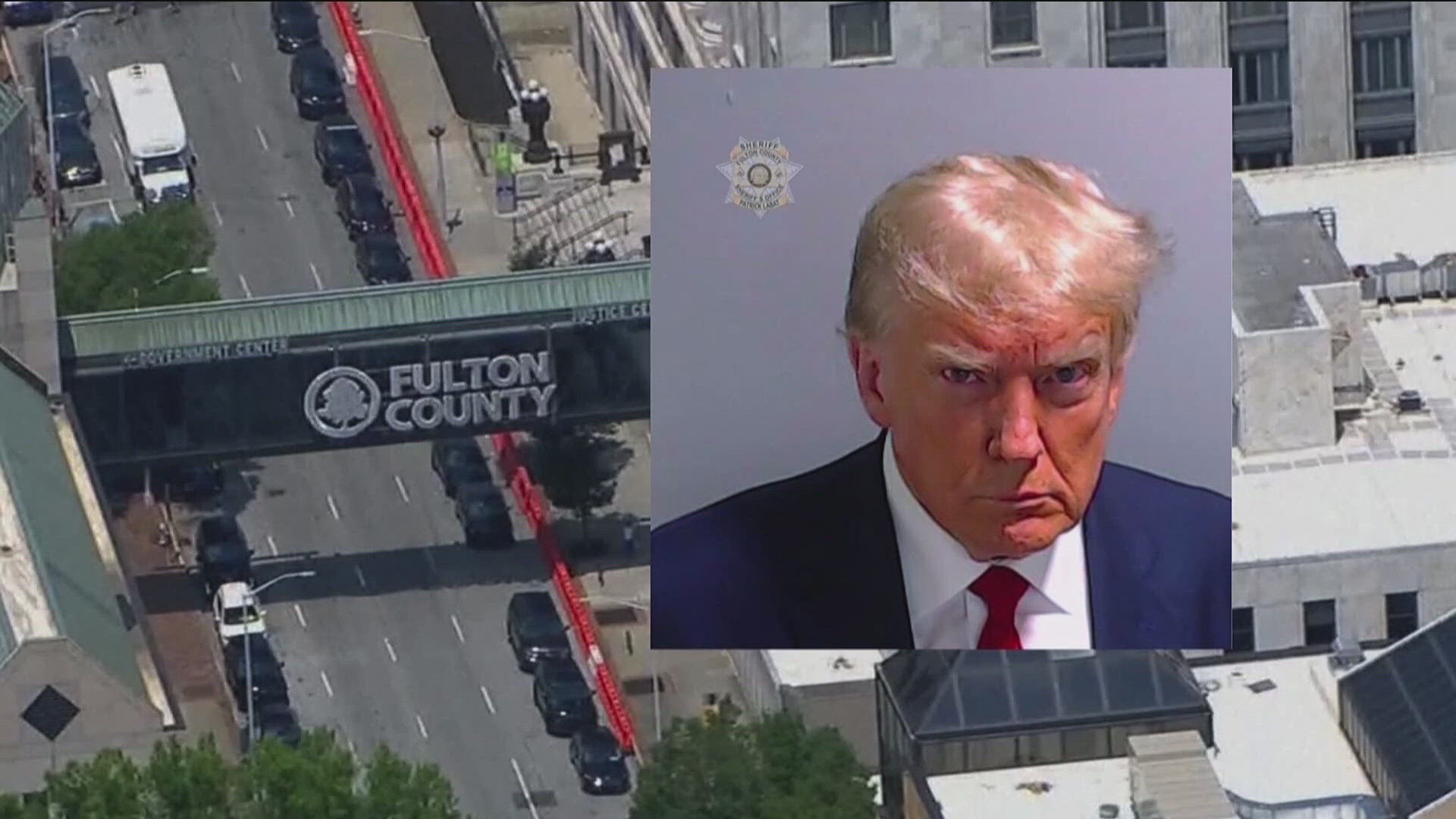ATLANTA — The Supreme Court on Monday issued its long-awaited opinion on the question of whether former President Donald Trump can claim immunity from criminal prosecution over events relating to the 2020 election and storming of the U.S. Capitol on Jan. 6, 2021
In the 6-3 ruling, the justices said for the first time that former presidents have absolute immunity from prosecution for their official acts and no immunity for unofficial acts. But rather than do it themselves, the justices ordered lower courts to figure out precisely how to apply the decision to Trump’s case.
RELATED: Supreme Court sends Trump immunity case back to lower court, dimming chance of trial before election
The decision has implications for criminal prosecutions such as the RICO case in Georgia, which alleges Trump and his allies violated the law with a criminal conspiracy to overturn his loss in Georgia in the 2020 election.
Those implications will now have to be fleshed out by lower courts under the Supreme Court's ruling.
Georgia is mentioned twice in the decision, on Page 25, addressing the federal indictment of Trump that brought about the immunity question:
The indictment’s remaining allegations cover a broad range of conduct. Unlike the allegations describing Trump’s communications with the Justice Department and the Vice President, these remaining allegations involve Trump’s interactions with persons outside the Executive Branch: state officials, private parties, and the general public. Many of the remaining allegations, for instance, cover at great length events arising out of communications that Trump and his co-conspirators initiated with state legislators and election officials in Arizona, Georgia, Michigan, Pennsylvania, and Wisconsin regarding those States’ certification of electors.
Specifically, the indictment alleges that Trump and his co-conspirators attempted to convince those officials that election fraud had tainted the popular vote count in their States, and thus electoral votes for Trump’s opponent needed to be changed to electoral votes for Trump.
After Trump failed to convince those officials to alter their state processes, he and his co-conspirators allegedly developed a plan “to marshal individuals who would have served as [Trump’s] electors, had he won the popular vote” in Arizona, Georgia, Michigan, Nevada, New Mexico, Pennsylvania, and Wisconsin, “and cause those individuals to make and send to the Vice President and Congress false certifications that they were legitimate electors.”
If the plan worked, “the submission of these fraudulent slates” would position the Vice President to “open and count the fraudulent votes” at the certification proceeding and set up “a fake controversy that would derail the proper certification of Biden as president-elect.”
According to the indictment, Trump used his campaign staff to effectuate the plan. On the same day that the legitimate electors met in their respective jurisdictions to cast their votes, the indictment alleges that Trump’s “fraudulent electors convened sham proceedings in the seven targeted states to cast fraudulent electoral ballots” in his favor. Those ballots “were mailed to the President of the Senate, the Archivist of the United States, and others.”
The Court ultimately sent back the question of whether this activity constitutes official or unofficial acts back to the lower courts.
Unlike Trump’s alleged interactions with the Justice Department, this alleged conduct cannot be neatly categorized as falling within a particular Presidential function. The necessary analysis is instead fact specific, requiring assessment of numerous alleged interactions with a wide variety of state officials and private persons. And the parties’ brief comments at oral argument indicate that they starkly disagree on the characterization of these allegations. The concerns we noted at the outset—the expedition of this case, the lack of factual analysis by the lower courts, and the absence of pertinent briefing by the parties—thus become more prominent. We accordingly remand to the District Court to determine in the first instance—with the benefit of briefing we lack—whether Trump’s conduct in this area qualifies as official or unofficial.
News happens fast. Stream it faster with our re-designed 11Alive+ app.
Watch newscasts, breaking news streams and get the latest sports, weather and VERIFY content -- 24 hours a day, 7 days a week. Available on Roku, Apple TV and Amazon Fire TV. Text "plus" to 404-885-7600 to download 11Alive+ and stream now.

